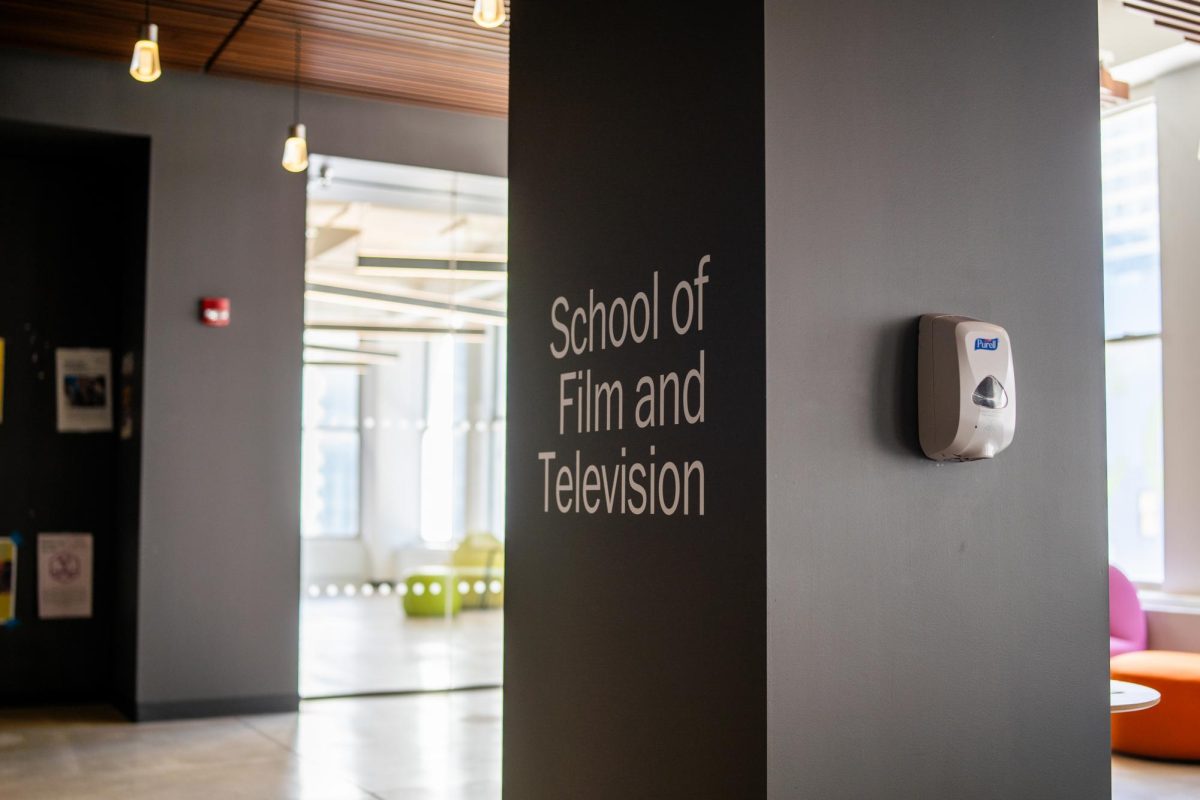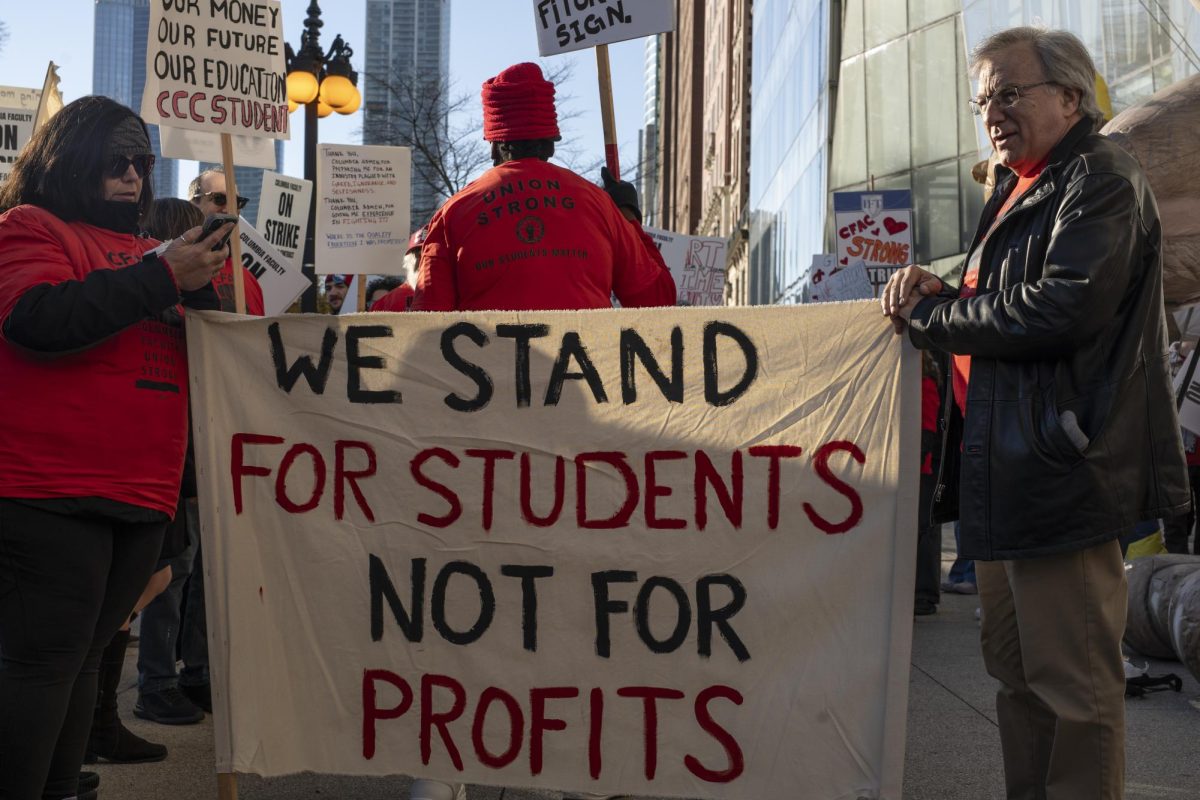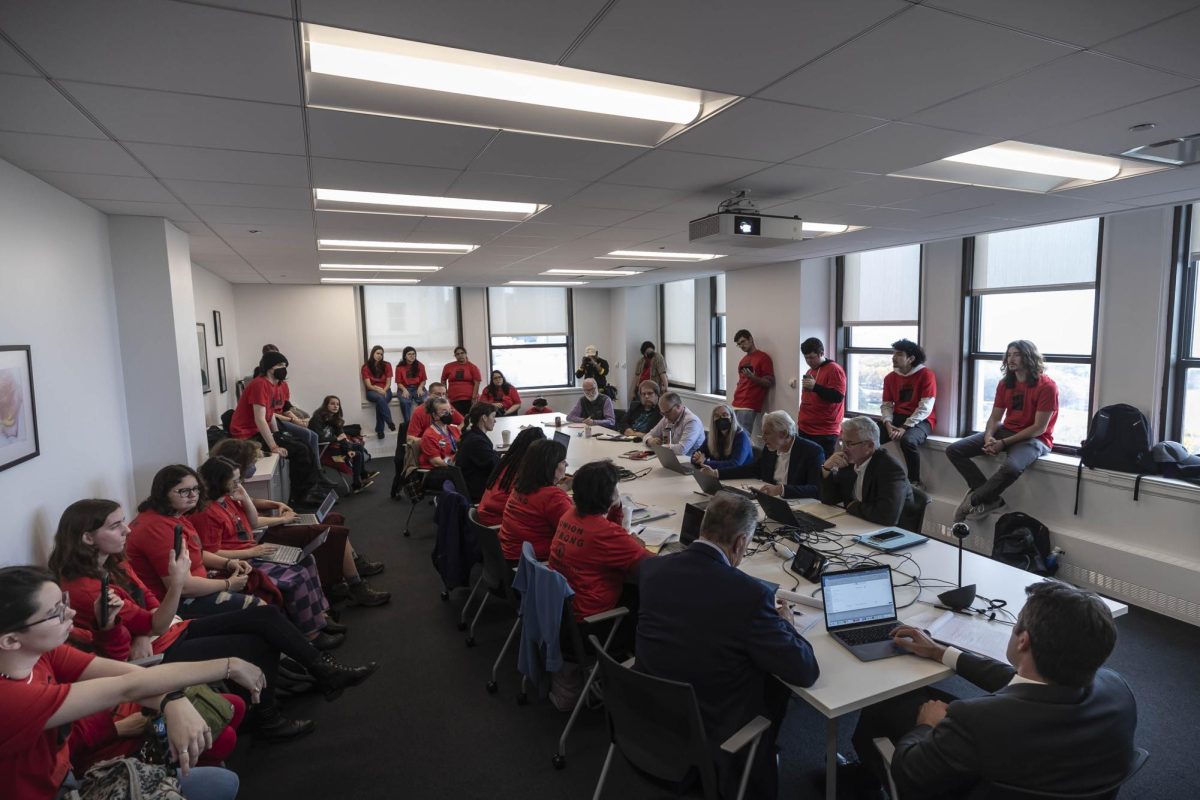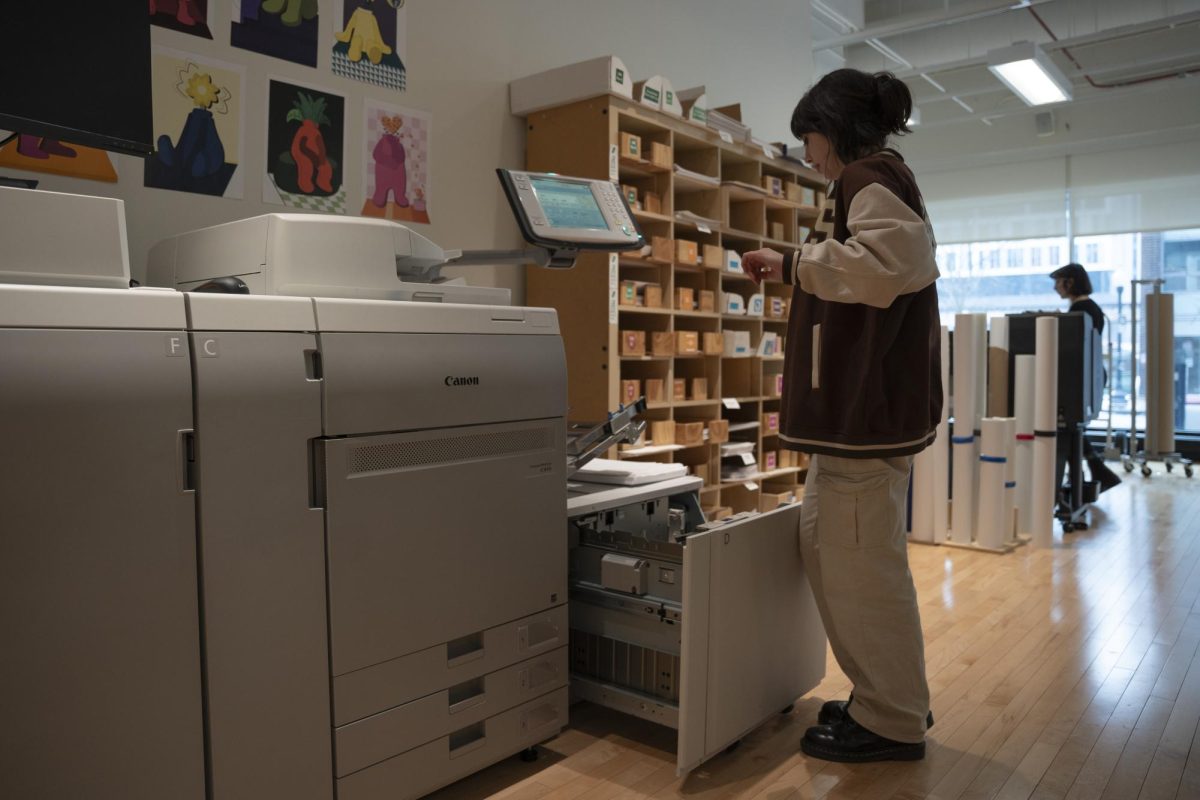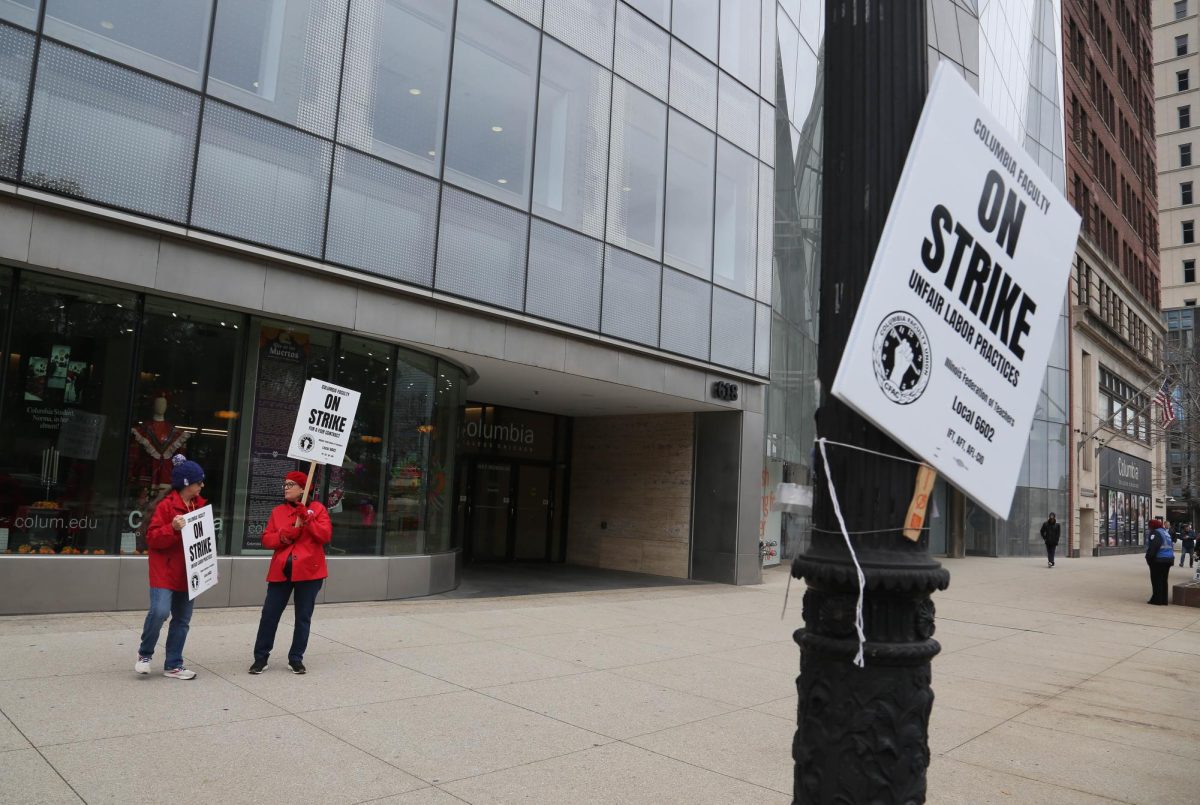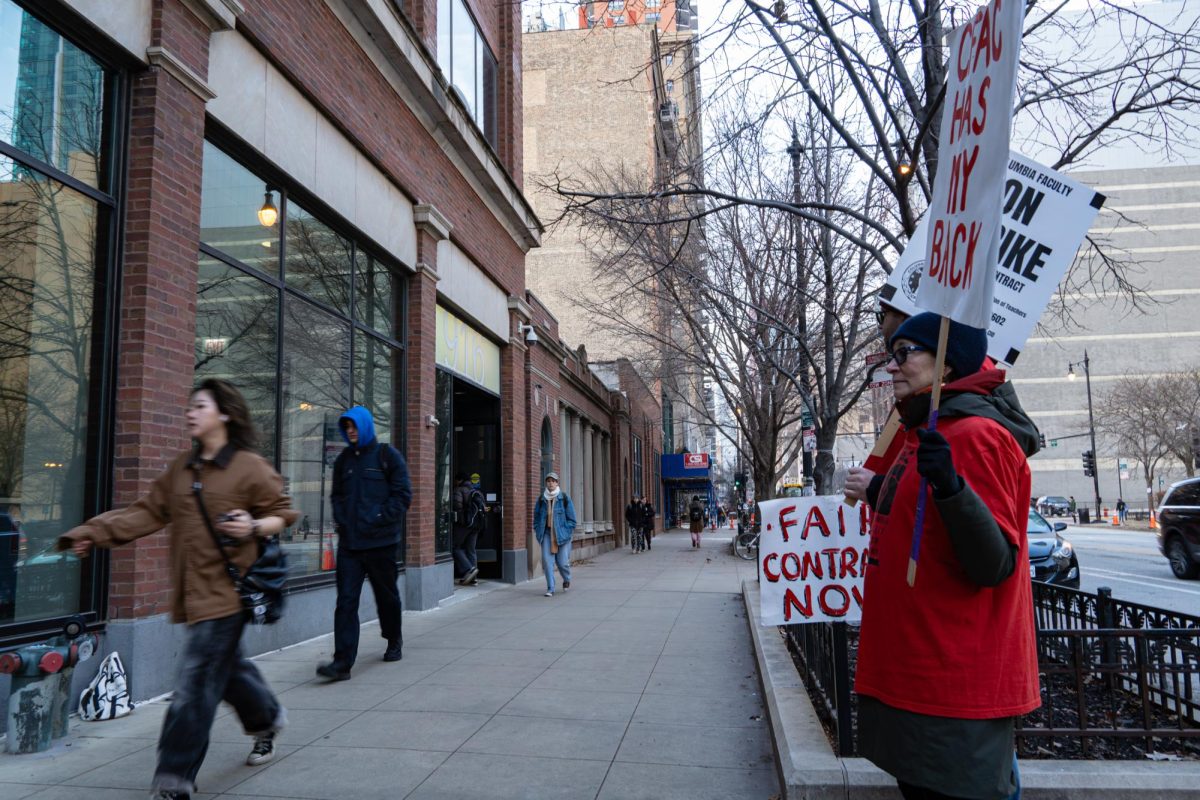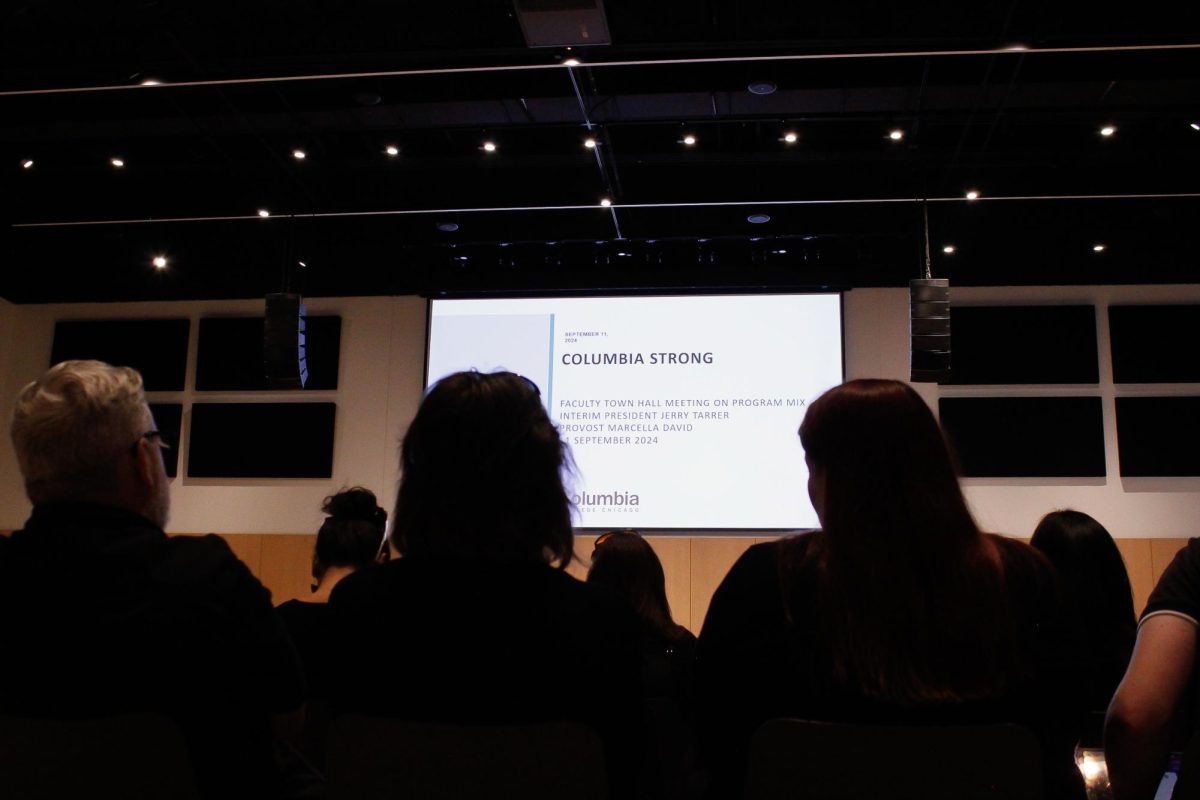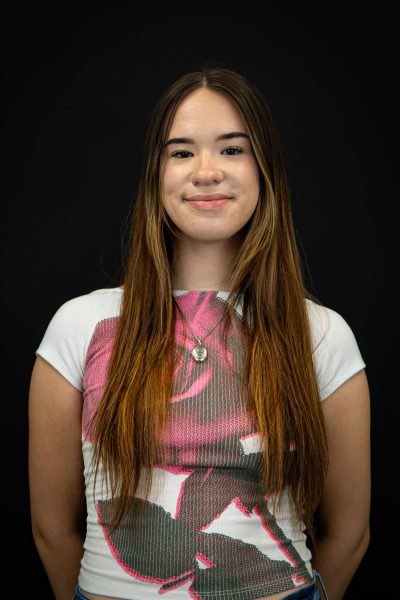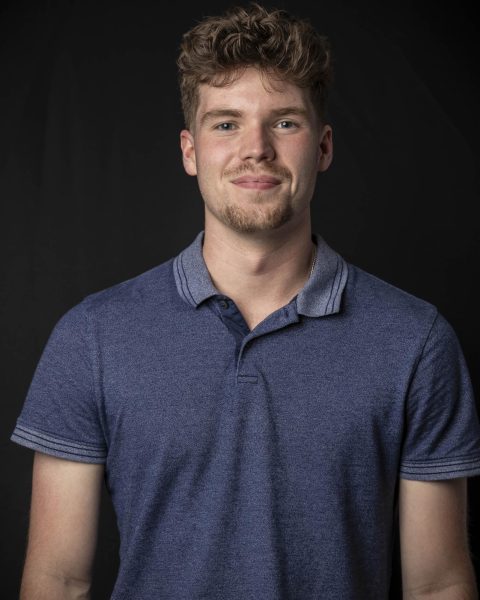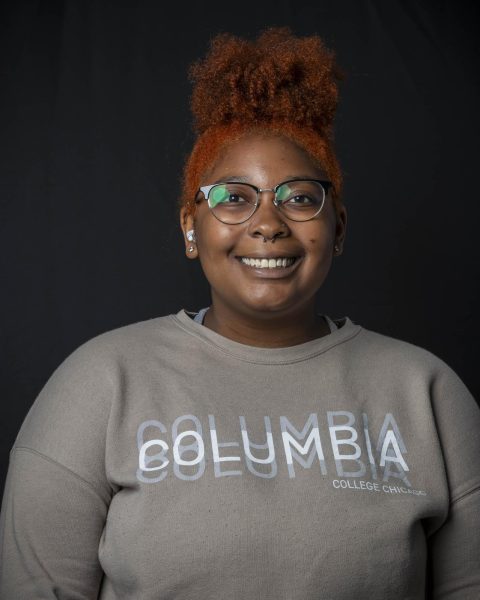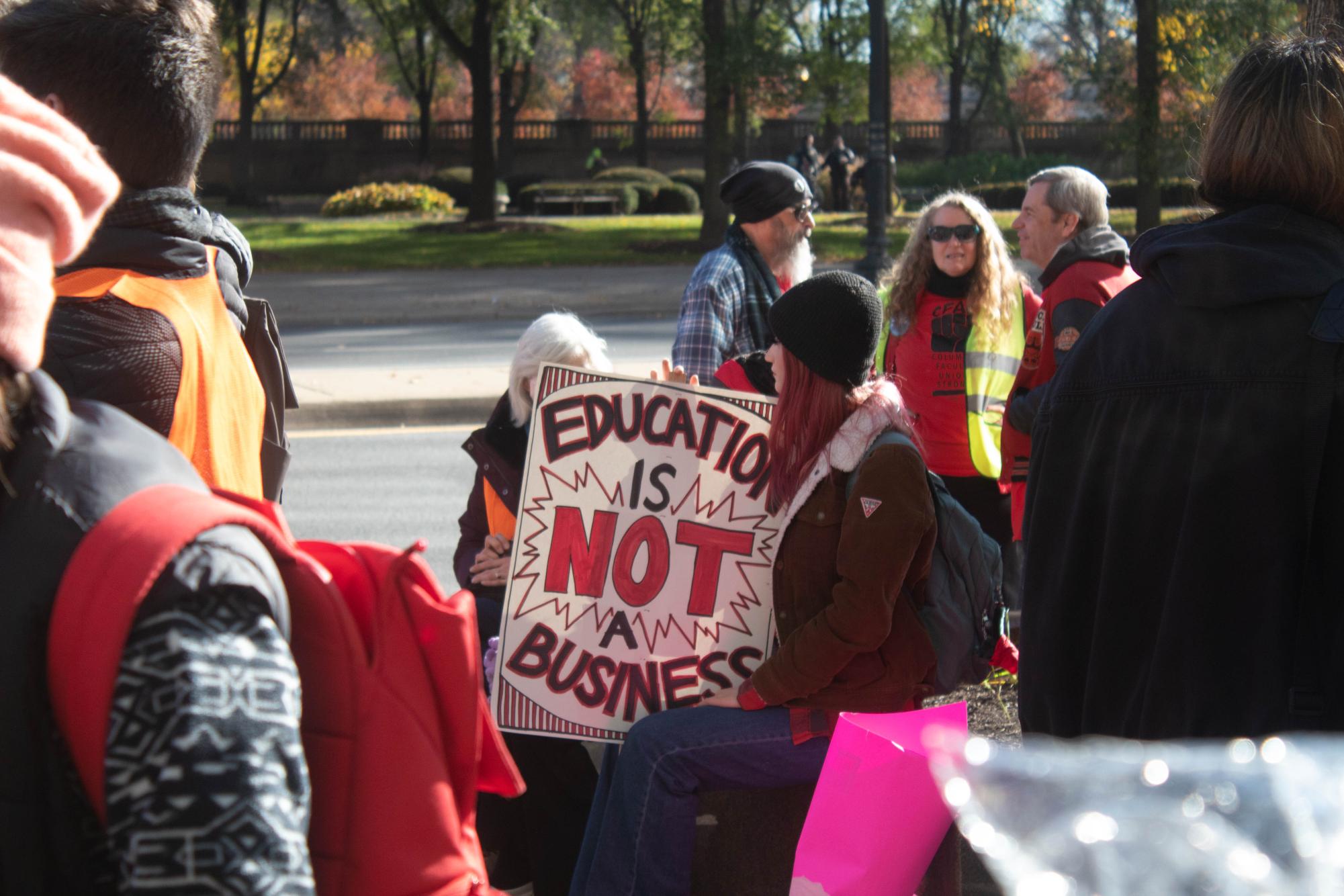
(Cierra Lemott)
Columbia President and CEO Kwang-Wu Kim addressed full-time faculty directly on Friday, Nov. 10 for the first time since the part-time union went on strike two weeks ago.
Appearing at a monthly Zoom meeting of the Faculty Senate, Kim took questions about the school’s financial situation and its future following the strike.
He made it clear that full-time faculty would be teaching more of the classes at Columbia as the college looks to save money by raising class sizes, cutting sections and giving part-time faculty fewer opportunities to teach. Full-time faculty are not part of a collective bargaining unit and have continued to teach through the strike.
“What we’re trying to accomplish right now is an overall shift in the percentage of teaching that happens at the college from the full-time faculty versus the part-time faculty,” Kim said.
The college has 584 part-time instructors and 221 full-time faculty. Course assignments reflect that, Kim said, noting that about one-third of classes are taught by full-time faculty and the remainder by part-time instructors.
“It’s not about the label,” Kim said. “It really has to do with the cadre of the faculty who have a different kind of experience with the mechanics and realities of higher education with the building of curriculum.”
Kim told the senate that “to have that kind of authority requires a certain experience and credential.”
“This is why we’re fighting so hard. I feel very strongly that the curriculum of an institution of higher education is the purview of the tenure-track tenured faculty, the full time faculty,” Kim said.
The union has claimed that the cost-cutting measures that the college has taken “directly harm student learning, mental health and retention.” It also has pushed back against plans to raise some course caps and cut courses and sections.
The union has rallied students around these issues, telling them their quality of education will be impacted if the changes are made.
In the hours before the Faculty Senate meeting, students and part-time instructors marched to Kim’s residence in solidarity with the two-week-old strike by the Columbia Faculty Union.
Kim acknowledged that increasing class sizes may move the college towards “a slightly different model than we’ve had before.”
“The goal is to get beyond this,” Kim said. “So that the financial model of the institution not only is more self-sustaining, but starts to give us the room that we are hoping to reinvest in the institution to invest more in our people to provide funding for the possibility of new programs, new directions.”
Kim will meet with full-time faculty and staff again on Nov. 14 in the last of three scheduled town halls to address the college’s financial situation. The meeting was changed to Zoom instead of in person. A student chat with Kim sponsored by the Student Government Association is still taking place in person on Nov. 16 in the Student Center.
In other business, the senate approved the implementation of an ad hoc committee for the spring semester to review specific elements of the college’s curriculum policy manual, the document that oversees all processes by which curriculum and academic policies are approved in the college.
Senior Associate Provost Nathan Bakkum, an associate professor, said that the goal of the committee is to “make sure that that change got through in a way that made sure that every voice was heard in the way that it needed to be heard, and everybody had a chance to weigh in on that change.”
These are the four topics that the ad hoc committee is expected to review:
- The composition of the Core Curriculum Committee and its placement within curriculum policy manual processes
- The timeline for spring semester approvals of new graduate programs
- The process and timeline for approving courses receiving the DEI designation, including membership of the review committee
- The process and timeline for approving courses receiving the Honors designation, including membership of the review committee
The ad hoc committee will gather input from relevant campus stakeholders and generate draft proposals, then present to the Academic Affairs Committee of the Senate. That committee will review and make recommendations to the full Faculty Senate, which will vote and send its approval to the provost. Once an agreement is reached, the manual can be amended and any changes will be in effect.
“Because the ad hoc committee includes representatives from AAC, Faculty Senate leadership, and the Provost’s office, we are hopeful that the committee’s work will reflect the perspectives of all of the key stakeholders in the formal approval process,” Bakkum said.
Senate President Madhurima Chakraborty, an associate professor in the English and Creative Writing Department, told senate members that “the work of the core curriculum committee is becoming even more visible than in a couple of past years,”
“We want to be mindful and deliberate about where the core curriculum committees work sits in the larger curricula approval processes,” Chakraborty said.




